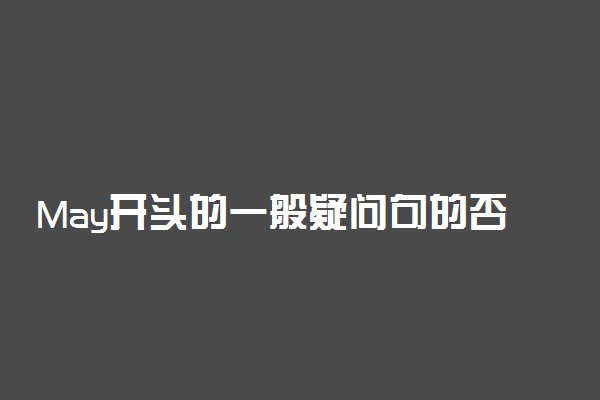may提问的肯定回答是:Yes,you can.或者,Yes,please.否定回答是,No,you can't.不要用must提问,如果要表达那个意思,你可以这样说:Do you have to...?can提问的肯定和否定回答同may一样。Yes,you can.&No,you can't.

May的主要用法
一、表示允许
(1)表示请求允许(即请求别人允许自己做某事),两者都可用,只是 might 表示的语气较委婉(但并不表示过去):
May I come round in the morning?
我早上来可以吗?
Might I have a little brandy?
我可以喝点白兰地吗?
I asked her if I might call and see her.
我问她我可否来看她。
I’d like to ask a question if I may.
如果可以的话,我想提个问题。
(2)表示给予允许(即自己允许别人做某事),通常要用 may而不用might:
You may leave whenever you please.
你高兴随时可以走。
You may go or stay, according as you decide.
是去是留由你自己决定。
You may use the room so long as you keep it clean.
你可以使用这个房间,只要你能保持干净。
体会以下对话的问句与答句:
A:May [Might] I stay?
我可以留下吗?(表请求,可用两者)
B:Yes, you may.
可以。(表允许,不能用 might)
在通常情况下,may 表示允许(请求允许或给予允许)时,总是针对“现在”或“将来”而言,若要表示已经给予或已经存在的允许,则通常不用 may,而用can:
Nowadays, children can do what they like.
现在小孩子喜欢干什么就可以干什么。
It’s unfair. He can stay and I have to leave.
这不公平,他可以留下,而我却得离开。
小编推荐
3.2025年261分在广西上什么大学好 近三年录取分数线是多少
4.2025四川水利职业技术学院王牌专业有哪些 最好的专业是什么